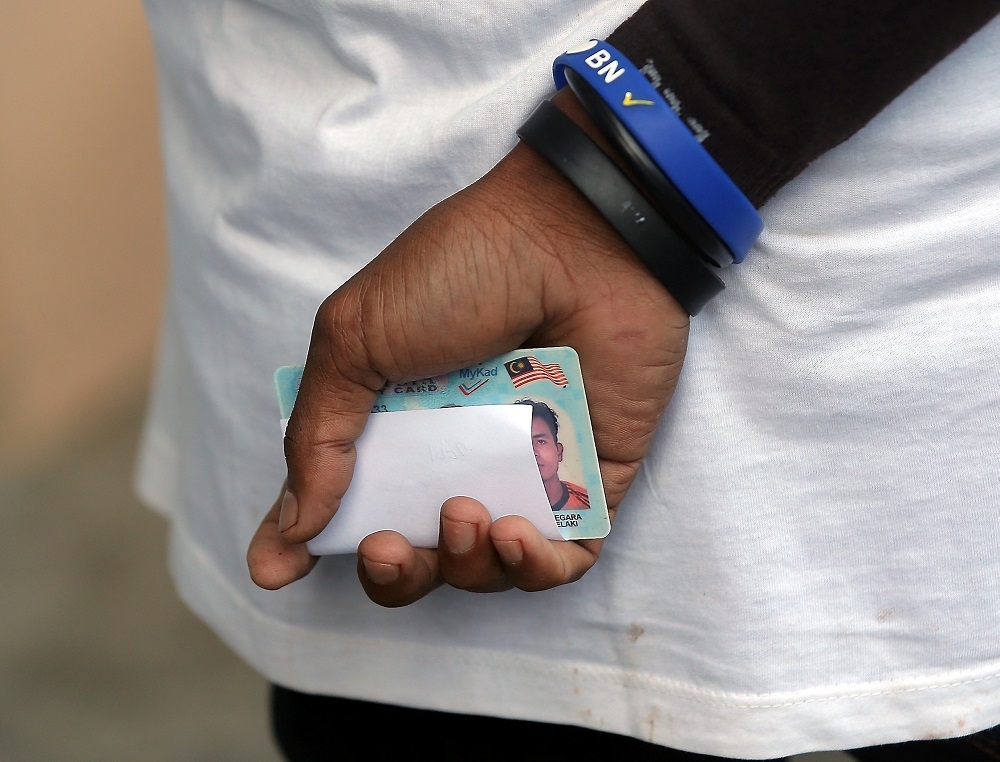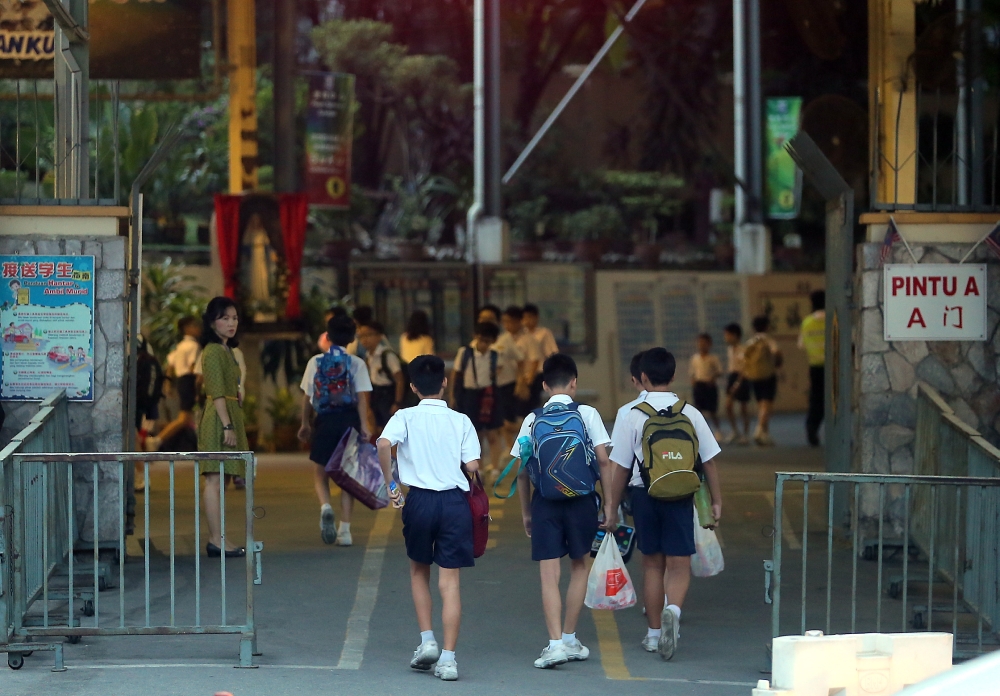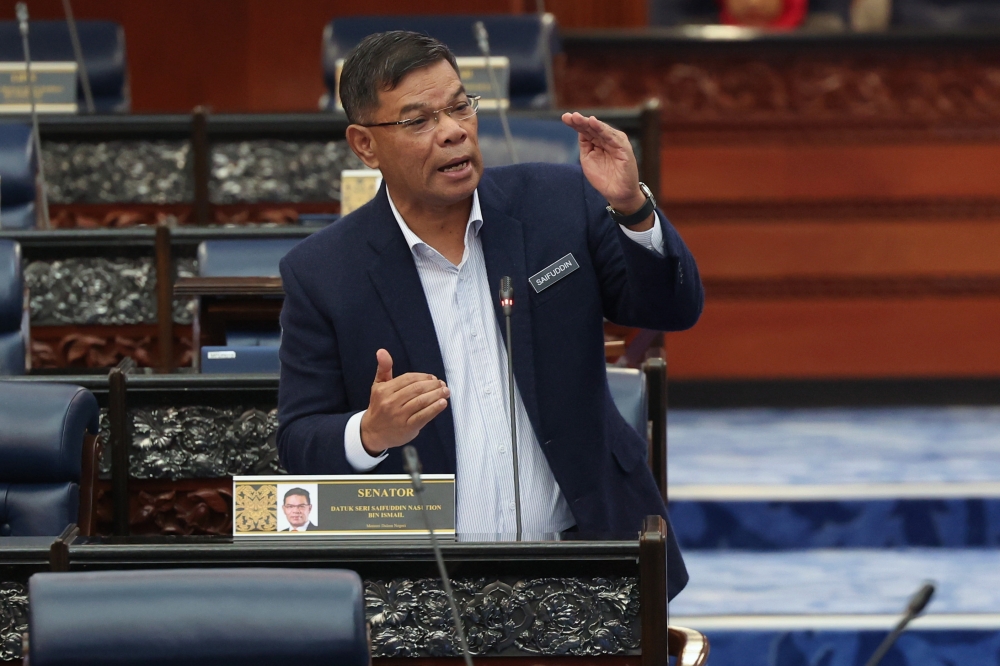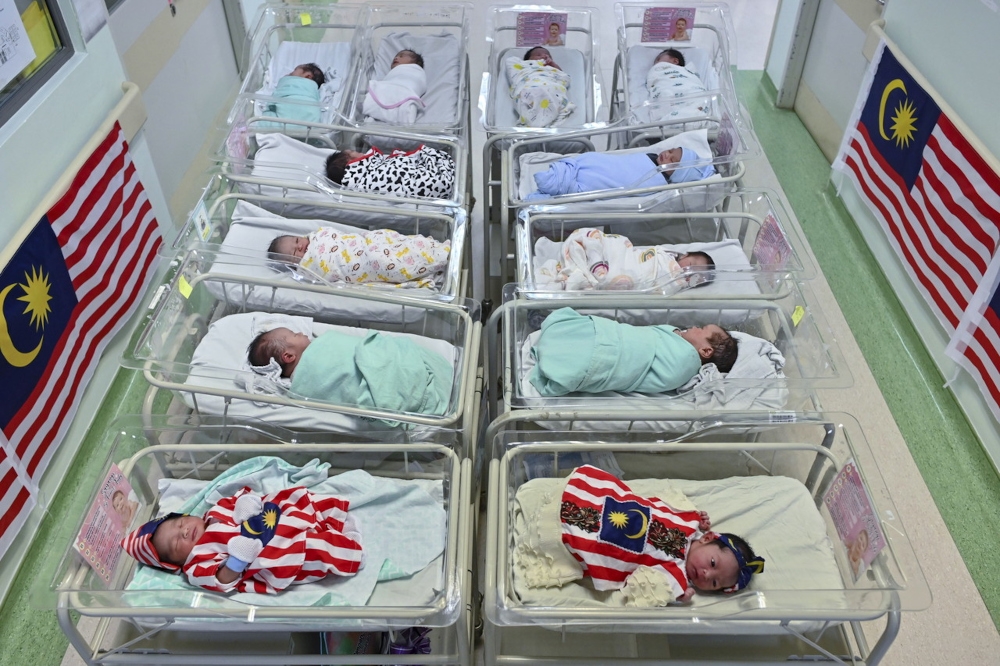KUALA LUMPUR, July 11 — Does the government really have zero data on how many stateless persons are in Malaysia?
Yes. To understand why and what the government officially thinks about stateless individuals, we take a quick look at what was said in Parliament. (All information below from written parliamentary replies in the Dewan Rakyat unless otherwise stated):
No box for ‘stateless’ in the official records
Simply put, the government does not recognise that stateless persons exist in Malaysia, so it does not collect or record any data on them.
On June 7, 2023, the Home Ministry said the term “stateless” generally refers to someone who has no citizenship from any country, and appeared to imply that no stateless person could have entered Malaysia based on this definition:
“Based on that term, there is no group with stateless status in Malaysia, this is because they will not be allowed entry to this country without valid travel documents.”
As for individuals who are within Malaysia, the ministry said records are only kept on whether they are Malaysian citizens or not.
On June 15, 2023, the Home Ministry said the “National Registration Department (NRD) will only record the status of whether an individual is a citizen or non-citizen only based on that individual’s biological parents’ marriage status and citizenship status at the time of birth”.
“In relation to that, the NRD does not record individuals who do not have citizenship (stateless) and the NRD does not have information about the total number of children who have no citizenship (stateless),” the ministry said.
In an apparent reference as to why some born in Malaysia are not citizens despite being entitled to citizenship, the ministry said the lack of personal identification documents — especially identity cards — was usually due to the parents’ attitude of not caring about registering their children’s birth, as well as geographical factors which make it difficult for those living in rural and interior areas to go to NRD’s office to do so.
Unusually, the ministry went one step further by asking MPs for their help to spread the word about the importance of birth registration and to ask those living in rural areas to immediately go to the nearest NRD office to register their child’s birth, to avoid their child facing problems with issuance of Malaysian identity cards and being “mistaken as someone who has no citizenship”.
The Home Ministry said the NRD had taken proactive steps through the Menyemai Kasih Rakyat (Mekar) programme to help those in rural areas with the registration of births and deaths, identity cards and citizenship matters.
Based on news reports, the NRD said Mekar was aimed at helping the elderly, persons with disabilities, patients who are bedridden and with chronic illnesses, rural folks including the Orang Asli and generally those unable to go to NRD offices.
From news reports, NRD in November 2021 said it received 104,517 applications for identity cards, birth and death registrations through Mekar since 2017; and in January 2023 said it received 292,999 applications via Mekar since 2013. From January to May 22, 2023, NRD received 12,008 such applications through Mekar.

But is being born in Malaysia and ending up stateless (not being a Malaysian even though you are entitled to citizenship) a result of late birth registration only?
There are actually also other circumstances that result in statelessness for people born in Malaysia, such as those abandoned at birth, those adopted by Malaysians but still denied Malaysian citizenship, and those born to a Malaysian father who did not have a valid registered marriage with the non-Malaysian mother.
In a May 25, 2023 written parliamentary reply, minister in the Prime Minister’s Department Datuk Armizan Mohd Ali told Kalabakan MP Datuk Andi Muhammad Suryady Bandy that the Sabah state government is currently in the first phase of collecting data on foreigners in Sabah to enable it to determine the actual numbers of “foreigners in Sabah including the stateless”.
They are not officially recorded, but their needs still exist
Stateless persons do exist and live in communities with Malaysians in Malaysia, and they have the same needs as Malaysians — the need to access healthcare and education, for example.
The government’s non-collection of statistics on stateless persons in Malaysia extends even to health issues, as seen in the Health Ministry’s March 29, 2023 reply to Bandar Kuching MP Dr Kelvin Yii who asked about public health statistics such as maternal mortality rates, HIV, hepatitis and vaccinations.
In its March 2023 reply, the Health Ministry said it only records public health indicators based on the two categories of Malaysian citizens and non-citizens, saying: “Marginalised groups such as refugees, communities without nationality, and undocumented migrants are included in the category of non-citizens.”
On May 23, 2023, the Health Ministry said non-citizen children are charged RM40 to register for the government’s immunisation services and RM40 for each vaccine injection. In this reply, it did not specify if stateless children were included under “non-citizen” children for vaccination purposes.
For non-citizen children aged below 12 and with Malaysian birth certificates and having either a Malaysian or permanent resident parent, the registration fee is RM1 and vaccination is at RM5 at the ministry’s health facilities, the ministry said.
The Health Ministry said it is currently considering giving vaccination services to non-citizen children without Malaysian birth certificates at the same fees for Malaysian children, but said such approvals will be on a case-by-case basis.
In the same May 2023 reply, the ministry said free polio vaccination was given to all non-citizen children — including those with either a Malaysian father or mother — aged seven and below since January 2022 as a preventive measure against the spreading of polio, while free supplementary vaccination was given to all children — regardless of citizenship status — to avoid the spread of vaccine-preventable diseases which can indirectly increase infection risk for local communities.
On March 21, 2023, the Education Ministry said a 2009 circular states that children who are stateless or without personal identification documents can be enrolled in government schools if one of the parents is Malaysian, and also if there is a letter from the village head to confirm such children is the child of a Malaysian mother or father.
The ministry said non-citizen children have to pay RM120 per year and RM240 per year before they can be enrolled in government primary and secondary schools respectively. The parents or guardians are required to settle the child’s citizenship application or identity documents within two years of enrolment, or to give a copy of the NRD application status to the state or district education office to keep the child in school if the application is still not resolved within two years.

Is there a hint on how many stateless persons are reflected in official records?
While not having records on the number of stateless persons in Malaysia, the government does keep track of the number of citizenship applications made and which category they were applied under.
But just remember that the number of citizenship applications is not necessarily equal to the number of stateless persons.
For example, it is possible that not all the applicants are stateless, as some could be foreigners who wish to be Malaysians. At the same time, not every stateless person who is entitled to Malaysian citizenship has made an application, so they might not be part of the statistics.
Here’s what the Home Ministry said in written parliamentary replies:
On June 15, 2023, it said it received 41,660 citizenship applications from 2018 to 2022, with 30,769 (74 per cent) of this still being processed. The status of being processed means the applicants are still waiting to hear from the Home Ministry on whether their application was approved or rejected.
On March 23, 2023, it said there were 54,369 citizenship applications from 2017 to 2022, including 6,966 (12.8 per cent) which have been approved and 35,750 (65.75 per cent) still being processed.
In response to Raub MP Chow Yu Hui who asked how many stateless individuals had applied for citizenship and were successful, the ministry on March 8, 2023 again said it does not record stateless persons and said NRD received 145,768 citizenship applications from “non-citizens” from 2012 to 2022.
Out of the 145,768, a total of 33,622 (about 23 per cent) were approved with most of them being female (25,771) while the rest were male (7,851).
Of the 33,622 who are now officially Malaysians, the highest proportion or 14,777 (44 per cent) were of Indonesian descent, followed by 4,354 (Indian descent), 3,048 (Thai descent), 2,601 (Filipino descent), 2,360 (Chinese descent) and 6,482 (others).
A huge chunk or almost 39 per cent of the 145,768 citizenship applications received in 2012 to 2022 would have been from children, if it is overlapped with available statistics from 2013 to early February 2022. That means at least more than a third are children.
From the Home Ministry’s March 2, 2022 parliamentary reply, the NRD’s records show it received 56,792 citizenship applications from those aged below 18 from 2013 to February 15, 2022, with 19,958 (35 per cent) of them rejected and 6,991 (12 per cent) approved.
On February 22, 2023, Home Minister Datuk Seri Saifuddin Nasution Ismail told the Dewan Rakyat that there were 132,272 citizenship applications from 2013 to February 21, 2023.

The different kinds of citizenship applications and stateless categories
Since Malaysia was formed 59 years ago and Malaya (now peninsular Malaysia) has been independent for 66 years, would you assume that stateless cases involving those who were born here before Independence have all been resolved by now?
Actually, even now, there are still persons born pre-Merdeka who are seeking to be recognised as Malaysian citizens under the Federal Constitution’s Article 16, with 1,232 applicants applying from 2018 to June 15, 2023, based on the Home Ministry’s June 26, 2023 written reply in the Dewan Negara.
Then there are children born out of wedlock with 354,945 such children in the Home Ministry’s records from 2013 to May 2023 (based on a June 26, 2023 Dewan Negara reply from the Women, Family and Community Development Ministry), while NRD recorded 650,827 children who were issued birth certificates indicating their birth out of wedlock in the overlapping time period of 2009 to February 15, 2022 (based on a March 2, 2022 Home Ministry reply).
But being born out of wedlock may not necessarily result in being stateless, as 74 per cent or 479,929 of them are Malaysian citizens, while the remaining 26 per cent (170,898 persons) are recorded as non-citizens. It is unclear how many of the 170,898 “non-citizens” are stateless.
(If a child is born in Malaysia out of wedlock to a Malaysian mother, the child will automatically be Malaysian. This is regardless of whether this child’s father is Malaysian or not.
But if the child is born in Malaysia out of wedlock to a Malaysian father and non-Malaysian mother, the government has interpreted the citizenship laws to mean that the child will be denied Malaysian citizenship as it argues the child should take on the mother’s citizenship. This puts the child at risk of being stateless.)
These children can apply for Malaysian citizenship under Article 15A if they have not hit the age limit of 21 years old.
If they are already above age 21, they would not be able to apply under Article 15A, which would mean the official statistics on Article 15A applications would not fully capture the size of these groups.
What is the Federal Constitution’s Article 15A? It gives the Malaysian government the power to register anyone aged below 21 as a citizen if it thinks there are “special circumstances”.
On December 16, 2021, the Home Ministry said the Article 15A citizenship pathway covers children born out of wedlock to Malaysians, Malaysians’ adopted children, those under the Department of Social Welfare’s (JKM) care; with the requirements being that the applicant must either be the Malaysian father, Malaysian adoptive parent or a Malaysian who is the legal guardian and that both they and the child must go to the NRD.
But the ministry said these conditions only qualify the person to submit an Article 15A application and there is no guarantee it would be approved.
On September 28, 2021, the Home Ministry said NRD received 33,094 applications under Article 15A from 2015 to 2021, with 4,534 (13.7 per cent) approved and 2,396 (7.2 per cent) rejected. It did not say how many of these were still being processed.
But other parliamentary replies indicate that many are still waiting to know their fate, with 12,154 citizenship applications under Article 15A still being processed from 2018 to June 2022.

Then there are also babies or children who were abandoned at birth, and even if they come under JKM’s care or are adopted by Malaysians, they could still end up stateless and struggling to be recognised as Malaysians.
This happens especially when these children were abandoned at birth without documents or without any information on who their biological parents are.
In a Dewan Negara reply on March 28, 2022, the Women, Family and Community Development Ministry said JKM has 1,726 children under its care as of December 31, 2021, including 155 who still face personal documentation issues. (JKM operates various institutional homes for children, with those under its care including those abandoned by their parents and those with no parents or guardians.
Of these 155 children, 37 have the status of “non-citizen”, 28 with their citizenship “yet to be determined”, and 90 still do not have birth certificates. 73 are girls, 82 are boys.
For such children, JKM will help apply for late birth registrations for those still not having birth certificates, and handle the citizenship applications for those whose nationality is “yet to be determined”.
For children who were previously under JKM’s care and are now under the care of foster families or their adoptive families, the latter will be the ones helping them to apply for citizenship under Article 15A.
Based on the Home Ministry’s June 2023 and July 2022 replies in the Dewan Negara and Dewan Rakyat respectively, NRD received 8,373 Article 15A citizenship applications for those who were adopted from 2018 to June 25, 2022, and received 316 citizenship applications (four approved, 100 rejected, 200 being processed) for children adopted through court orders from 2018 to June 30, 2022.
When asked by Raub MP Chow Yu Hui if the government will restore the pre-2009 policy of automatically granting permanent resident status to children if their adoptions are approved, the Home Ministry on June 7, 2023 said adoption does not mean automatic acquisition of Malaysian citizenship and that the child’s citizenship status will be based on the biological parents’ nationality.
The Home Ministry also said it has no intention of bringing back the permanent resident policy for such adopted children as it said legally adopted children have the “better choice” of applying for citizenship under Article 15A (this option is available if the child is aged below 21).
Read here for how non-profit and non-government organisation Development of Human Resources for Rural Areas (DHRRA) identified over 16,000 stateless cases in peninsular Malaysia from 2016 to June 2023.






















